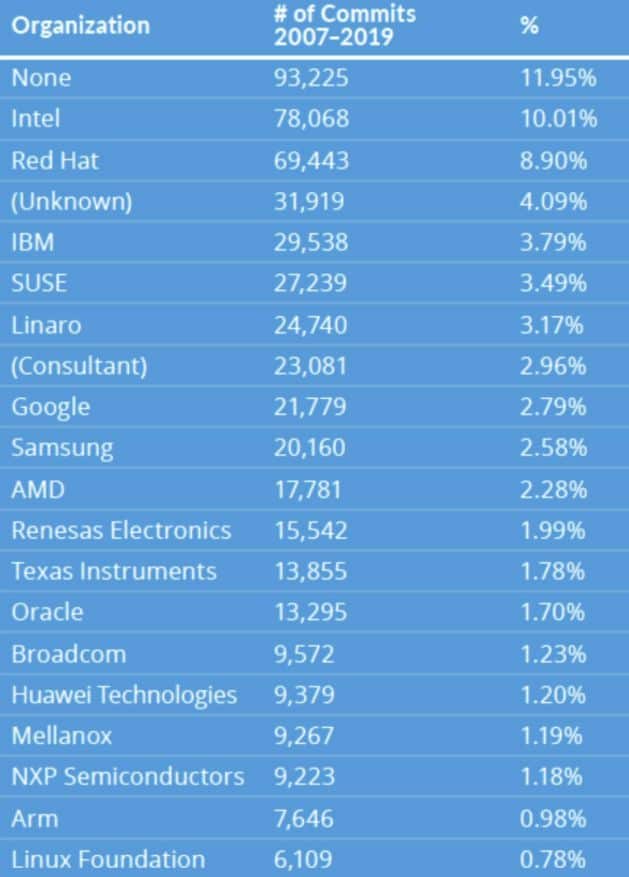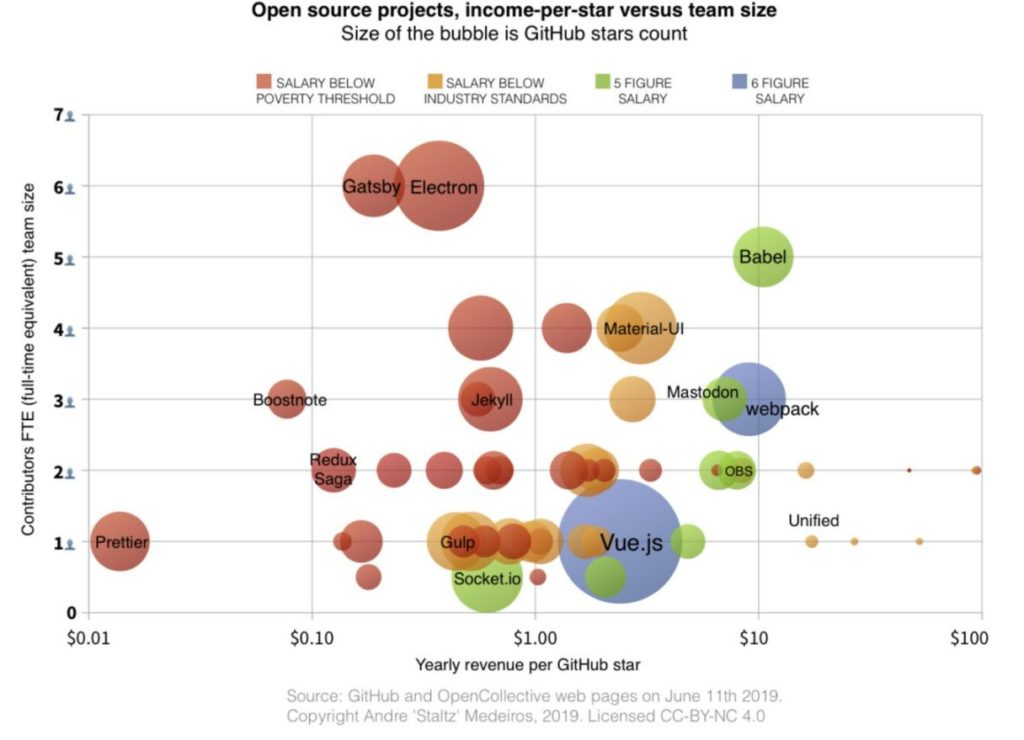Christofer Dutz is “sick of fighting”. The developer is one of six people in charge of Apache PLC4X, a collection of libraries for communicating with programmable logic controllers. It appears complicated, and it is, but it is also one of the aspects that allows many automation and IoT systems to function properly.
However, the developer stated that he is bored of working for the sake of art these days.
“Industry appears to favor PLC4X and Open Source in general, but it does not appear to be willing to [financially] support those who work on it.”
Companies save millions of dollars as a result of their efforts, but they make no contributions, and Dutz has decided to discontinue providing free support to the PLC4X community. They must either pay him or he will quit. The issue isn’t new, but it’s part of a terrible and unfair reality that needs to be addressed.
Compliments and applause are not enough
Just this week we learned about the case of Marak Squires, the developer of two of the most popular NPM libraries. Those software components have a user base that causes them to be downloaded nearly 25 million times each week, but Squires decided to corrupt them to prove something important: “I am no longer implementing features users might need, I am no longer instantly fixing bugs for free.”
For Christofer Dutz the reality is exactly the same. Two days ago, he posted on his GitHub blog post explaining how he was tired of working on the Apache PLC4X project for almost nothing in return.
For a few years, he had no problem with that job: the company he worked for actually paid him to work full-time on this critical project for many areas of industrial automation.
In that post and in a previous one, he told how, for example, his work had allowed a company to save million of dollars in license costs that it would have had to invest in a commercial solution, and that with three days of work with three other people they managed to make their solution perform 1,300 times better than that offered by that commercial solution.
Even so, he explained, “we keep failing to get clients”, and that unofficially the reason had to do with political issues, not with the performance of his solution. In fact, he explained, they had to sign non-disclosure agreements (NDAs) that prevented them from speaking openly about their successes.
“Everything in the automation industry is considered top-secret, even simply telling the world that you’re using a given product seems to be impossible.
Dutz gave conferences and tried to communicate how important this project could be for many companies, but he was not successful because in this segment “Everything is about industrial fairs with extremely expensive booths. The budgets the big players have at their disposal are simply unbelievable. As an open-source project you have no chance of being noticed at all.”
What usually happens is something terrible: companies contact Dutz and his project colleagues to tell them basically the same thing every time: “Thank you for providing this awesome PLC4X. It’s making our lives so much easier. So we’re using it in one of our countries biggest {steel melting plants}/{aerospace companies}/{car manufacturers}/{pharmazeutical companies}/… and have this problem …”.
And then they basically just ask you for help, expecting free help.
In 2020 this German developer decided to go it alone and try to turn his passion into something he could live on, but he had a particularly bad time: “In Germany a company needs to be profitable. If you run your business at a deficit for too long, you get your business closed, and then you usually even have to pay back a lot of taxes”.
Dutz had continued to work almost for free on PLC4X, but he still had to pay to buy automation software and hardware for his tests, and eventually had to convince officials to give him a little more time.
After all this time, Dutz confessed that he was “sick of fighting. I’m sick of investing my precious free time” and made it clear that he felt that “I’m burning up and not really getting anything back. Just as with the folks currently working in healthcare [referring to his fight against COVID-19]. Even if you think kind words and clapping is enough … believe me.”
All this has made him make a radical decision. He will stop working for the love of art and giving free support. If they don’t pay him, he’ll quit.
“If the industry doesn’t support the people behind open-source, I at least will from now on stop blindly supporting them for free.”
An old, terrible and unfair reality that affects many other Open Source projects
What happened with Dutz and Squires is really the last straw in a glass that has been overflowing for far too long. We can crack a smile when remembering the eternal meme that this is going to be the year of Linux on the desktop, but the reality is very different.
Linux may not succeed on PCs or laptops, but Linux and many other Open Source projects are absolutely critical to the internet infrastructure we use every day. The examples are already famous: Android is based on Linux and many other Open Source components (but no, it’s not Open Source), and the presence of Linux on servers is gigantic. Let’s not talk about the world of supercomputing, where Linux’s market share is absolute: 100% of the most powerful supercomputers in the world are based on Linux.
The most powerful companies on the planet have in fact signed up for this Open Source thing in a very cute way: they presume to use it and share a certain number of projects as Open Source, but what is clear is that they receive much more than they give.
The examples are clear, and if there is a company that has managed to whitewash its image with this type of message, it is Microsoft, which seems to have gone from hate to love and is now taking advantage of Linux to reconcile with developers and to enhance its gigantic infrastructure in the cloud, Azure. Did you know that Linux is used more than Windows in Azure? it is.
Another thing is that these companies give back to the world of Open Source and to the community all that they receive. It is true that some open projects with Open Source licenses and thus allow developers from all over the world to contribute, but the motivations are usually debatable, as is the case with Chromium —everyone has ended up adopting it except Safari and Firefox, which fights against everyone— or with Flashy but minor projects like Windows Terminal.
Then curious situations occur, such as the one that affects the kernel of the GNU/Linux operating system. The Linux kernel, its fundamental component, does not stop being improved and evolving, and do you know who contributes to this development? Big tech companies. In its August 2020 report, the Linux Foundation revealed the top 20 contributors to Linux code in recent years:

It is something that we discussed a long time ago and that reveals how this commitment to Open Source is, logically, a self-interested commitment. Companies like Intel, Red Hat (now owned by IBM), Google, Samsung or AMD contribute to the kernel is due to their interest that the kernel adapts to their needs with drivers and components that allow them to take advantage of certain hardware components used or developed by those companies.
However, these and many other companies and entities make use of Open Source without giving anything back in return. A developer complained years ago about how Amazon ignored the work of volunteer programmers who contributed to his Open Source projects (and to his gigantic Amazon Web Services platform).
Meanwhile, in February 2021 we learned that the European Union saves millions of dollars a year thanks to Open Source developers.
Open Source developers only receive handouts
The problem in many cases is the same: Open Source developers contribute their effort and work to all kinds of projects because that is their passion, but the economic return on that effort is terrible.

The Open Source developer André Staltz commented on an article published in June 2019 in which he analyzed the situation. The author chose the most popular Open Source projects thanks to the OpenCollective platform and studied the economic return (for example through the Patreons that some of the volunteers maintained) or things like their reputation on GitHub.
He chose 58 projects – the most popular – and was able to estimate the annual salary of those who worked on them. Among these almost sixty projects, most of them are below the limits of sustainability.
As the chart shows, more than 50% of the projects were marked with a red bubble, indicating that those who maintain them cannot support those responsible above the poverty line. 31% are orange, indicating developers willing to work for a salary that would be considered unacceptable in our industry.
According to his calculations, the median annual donation is $217, which could be considered almost like a handout compared to the salaries that expert developers such as those who work on these projects earn today easily, and which in the United States are around $100,000.
According to his estimates, the approximate salary of these developers, taking into account the money invested by companies —which are once again interested in someone continuing to work on these projects— is around $9,000 a year, a figure that is again much lower than what a developer can charge in conventional companies.
Staltz began his article by lamenting how he had discussed it with other developer colleagues who worked on less-popular Open Source projects: donations, for example, can come through Patreon, which is an interesting system due to its simplicity and ability to scale, but it ended up being unfair and more of a handout than anything else. In his writing, this developer made it clear: “The struggle of open source sustainability is the millennium-old struggle of humanity to free itself from slavery, colonization, and exploitation. This is not the first time hard-working honest people are giving their all, for unfair compensation.”
As indicated in The Register, the problem of the sustainability of Open Source is well known. Amazon has been heavily criticized for supporting projects that favored it and made things difficult for competitors such as MongoDB or ElasticSearch, a project that it forked and later called OpenSearch Service.
Log4j maintainers have been working sleeplessly on mitigation measures; fixes, docs, CVE, replies to inquiries, etc. Yet nothing is stopping people to bash us, for work we aren't paid for, for a feature we all dislike yet needed to keep due to backward compatibility concerns. https://t.co/W2u6AcBUM8
— Volkan Yazıcı (@yazicivo) December 10, 2021
The appearance of the Log4j vulnerability, which has been one of the most serious in recent times —some are of the opinion that it could have “catastrophic proportions”— also triggered that clear protest from many Open Source developers and users: are Big Tech taking advantage of it? of this type of code?
That problem once again proved that an essential component like this works thanks to the work of volunteers who hardly receive anything in return. Volkan Yazici, one of those responsible for this work, made it clear, openly protesting on Twitter. Despite working tirelessly, he said, “nothing stops people from criticizing us for a job we don’t get paid to do and a feature we all dislike but needed to keep for backwards compatibility.”
Something similar to Heartbleed, then considered the biggest security flaw in the history of the internet. The OpenSSL library, a mainstay of the contemporary internet, was basically being maintained by a single software developer and supported financially with $2,000 a year. The industry reacted (timidly) and some big technology companies got together to contribute 3.9 million dollars over three years to finance this and other Open Source projects, but the damage had already been done and once again reflected a terrible and unfair situation.
There are initiatives that try to alleviate the situation: GitHub launched its GitHub Sponsors program in December 2020 after starting a beta phase in May 2019, but in the end, we are facing a solution that once again affects the problem of alms and donations that companies or individuals are kind enough to grant these developers and their projects.
At this rate, we could end up seeing how more and more Open Source developers end up following in the footsteps of Dutz and Squires: either they receive fair financial compensation, or we could see a future in which all kinds of Open Source projects end up abandoned.
Image Credit: Getty
You were reading: “Kind words and clapping not enough”: Another Open Source DEV gets “sick” of working for the love of art and reveals an unfair reality
